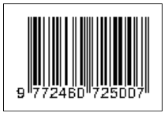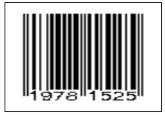Spatial Condition in Intuitionistic Fuzzy C-Means Clustering for Segmentation of Teeth in Dental Panoramic Radiographs
Wawan Gunawan(1*), Agus Zainal Arifin(2), Undang Rosidin(3), Nina Kadaritna(4)
(1) Department Mathematic Education, FTK UIN Raden Intan Lampung
(2) Department of Informatics, Faculty of Information and Communication Technology, Institut Teknologi Sepuluh Nopember (ITS), Surabaya
(3) Pendidikan Fisika, FKIP Universitas Lampung
(4) Pendidikan MIPA, FKIP Universitas Lampung
(*) Corresponding Author
Abstract
Dental panoramic radiographs heavily depend on the performance of the segmentation method due to the presence of unevenly illumination and low contrast of the images. Conditional Spatial Fuzzy C-mean (csFCM) Clustering have been proposed to achieve through the incorporation of the component and added in the FCM to cluster grouping. This algorithm directs with consideration conditioning variables that consider membership value. However, csFCM does not consider Intuitionistic Fuzzy Set to take final membership and final non-membership value into account, the effect does not wipe off the deviation by illumination and low contrast of the images completely for improvement to skip some scope. In this current paper, we introduced a new image segmentation method namely Conditional Spatial in Intuitionistic Fuzzy C-Means Clustering for Segmentation of Teeth in Dental Panoramic Radiographs. Our proposed method adds hesitation function aiming to settle the indication of the knowledge lack that belongs to the final membership function to get a better segmentation result. The experiment result shows this method achieves better segmentation performance with misclassification error (ME) and relative foreground area error (RAE) values are 4.77 and 4.27 respectively.
Keywords
Full Text:
PDFReferences
[1]. P.L. Lin, P.Y. Huang, P.W. Huang, H.C. Hsu, and C.C. Chen, “Teeth segmentation of dental periapical radiographs based on local singularity analysis”. Computer Methods and Programs in Biomedicine, vol. 113, pp. 433–445, October 2013.
[2]. Yusra Y. Amer and Musbah J. Aqel, “An Efficient Segmentation Algorithm for Panoramic Dental Images”, International Conference on Communication, Management and Information Technology, vol. 65, pp. 718-725, 2015
[3]. Sudip Kumar Adhikari, Jamuna Kanta Sing, Dipak Kumar Basu, and Mita Nasipuri, “Conditional spatial fuzzy C-means clustering algorithm for segmentation of MRI images”, Applied Soft Computing, vol. 34, pp. 758-769, June 2015
[4]. Xuemei Zhao, Yu Li, and Quanhua Zhao, “Mahalanobis distance based on fuzzy clustering algorithm for image segmentation”, Digital Signal Processing, vol. 43, pp. 8-16, April 2015.
[5]. F.B. Tek, A.G. Dempster, and I. Kale, “Noise sensitivity of watershed segmentation for different connectivity: experimental study”, Electronics Letter, Vol. 40, pp 1332–1333, October 2014.
[6]. Jiayin Kang, Lequan Min, Qingxian Luan, Xiao Li, and Jinzhu Liu “Novel modified fuzzy c-means algorithm with applications”, Digital Signal Processing, vol. 19, pp. 309–319, December 2009
[7]. J.C. Bezdek, “Pattern Recognition with Fuzzy Objective Function Algorithms”, Kluwer Academic Publishers, Norwell, MA, USA, 1981
[8]. Atanassov K. T., “Intuitionistic Fuzzy Set,” Fuzzy Sets Syst, Vol. 20,
pp. 87-97, 1986.
[9]. Tamalika Chaira and Sneh Anand, “A novel intuitionistic fuzzy
approach for tumour/hemorrhage detection in medical images,”Journal
of Scientific and Industrial Research, vol. 70, pp.427-434, June 2011
[10]. Sezgin, M., and Sankur, B., “Survey over image thresholding techniques and quantitative performance evaluation”, Journal of Electronic Imaging, vol. 13 (1), 146–165. 2004
[11]. Zhang, Y.J., “A survey on evaluation methods for image segmentation”, Pattern Recognition, vol. 29, pp. 1335–1346, 1996.
[12]. Nobuyuki Otsu, “A Threshold Selection Method from Gray Level Histograms”. IEEE Trans. Systems Man Cybernet, vol. 9, pp. 62–66, 1979.
[13]. Agus Zainal Arifin and Akira Asano, “Image Segmentation by Histogram Thresholding using Hierarchical Cluster Analysis”, Pattern Recognition Letters, vol. 27, pp. 1515-1521, May 2006.
[14]. Agus Zainal Arifin, Aidila Fitri Heddyanna, and Hudan Studiawan, “Ultrafuzziness Optimization Based On Type II Fuzzy Sets for Image Thresholding”. ITB J. ICT, Vol. 4., No. 2, pp. 79-94, 2010.
[15]. Dini Adni Navastara and Agus Zainal Arifin, “Image Thresholding on Segmentation of Teeth In Dental Panoramic Radiographs”, International Conference on Advanced Computer Science and Information Systems December, vol. 7, 2009.
Article Metrics
Refbacks
- There are currently no refbacks.
Copyright (c) 2019 IJCCS (Indonesian Journal of Computing and Cybernetics Systems)

This work is licensed under a Creative Commons Attribution-ShareAlike 4.0 International License.
View My Stats1







